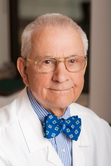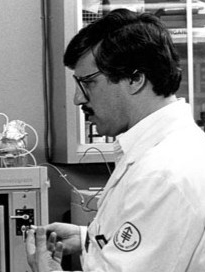Effect of granulocyte colony-stimulating factor on neutropenia and associated morbidity due to chemotherapy for transitional-cell carcinoma of the urothelium Journal Article
| Authors: | Gabrilove, J. L.; Jakubowski, A.; Scher, H.; Sternberg, C.; Wong, G.; Grous, J.; Yagoda, A.; Fain, K.; Moore, M. A. S.; Clarkson, B.; Oettgen, H. F.; Alton, K.; Welte, K.; Souza, L. |
| Article Title: | Effect of granulocyte colony-stimulating factor on neutropenia and associated morbidity due to chemotherapy for transitional-cell carcinoma of the urothelium |
| Abstract: | We evaluated the ability of human recombinant granulocyte colony-stimulating factor (rhG-CSF) to prevent chemotherapy-induced neutropenia or to accelerate recovery from this complication and thus allow patients to receive full doses of antineoplastic agents on time, according to protocol design. Twenty-seven patients with transitional-cell carcinoma of the urothelium who were undergoing treatment with methotrexate, doxorubicin, vinblastine, and cisplatin were given rhG-CSF (up to 60 μg per kilogram of body weight per day) before their first cycle of combination chemotherapy, during the first cycle, or at both points. Treatment with rhG-CSF before chemotherapy resulted in a dose-dependent increase in the absolute neutrophil count. Treatment with rhG-CSF after chemotherapy significantly reduced the number of days (91 percent) per patient on which the absolute neutrophil count was 1000 per microliter or less (P = 0.0039), reduced the number of days (1 vs. 35) on which antibiotics were used to treat fever and neutropenia, and significantly increased the percentage (100 vs. 29 percent) of patients qualified to receive planned chemotherapy on day 14 of the treatment cycle (P = 0.0015). In addition, the incidence of mucositis was significantly decreased (11 vs. 44 percent, P = 0.041), as was its severity. These findings demonstrate that rhG-CSF is a potent stimulus of normal neutrophil proliferation and maturation. In addition, its administration can reduce both the hematopoietic and oral toxicity of chemotherapy. (N Engl J Med 1988; 318:1414–22.) NEUTROPENIA is a major factor contributing to infection, morbidity, mortality, and underdose in patients undergoing chemotherapy for cancer.1 An agent capable of either accelerating recovery from or preventing chemotherapy-induced myelosuppression would clearly be beneficial. Recently, colony-stimulating factors, which control the proliferation of granulocytes and macrophages, have been purified, molecularly cloned, and expressed as recombinant proteins.2 3 4 5 These hematopoietic glycoproteins have been shown to increase leukocyte counts in nonhuman primates and in patients.6 7 8 9 In addition, the administration of a specific growth and differentiation factor for neutrophil granulocytes — recombinant human granulocyte colony-stimulating factor (rhG-CSF) — has shortened the period of neutropenia in. © 1988, Massachusetts Medical Society. All rights reserved. |
| Keywords: | adult; clinical article; neutropenia; cisplatin; doxorubicin; methotrexate; vinblastine; transitional cell carcinoma; granulocyte colony stimulating factor; human; priority journal |
| Journal Title: | New England Journal of Medicine |
| Volume: | 318 |
| Issue: | 22 |
| ISSN: | 0028-4793 |
| Publisher: | Massachusetts Medical Society |
| Date Published: | 1988-06-02 |
| Start Page: | 1414 |
| End Page: | 1422 |
| Language: | English |
| DOI: | 10.1056/nejm198806023182202 |
| PUBMED: | 2452983 |
| PROVIDER: | scopus |
| DOI/URL: | |
| Notes: | Article -- Export Date: 6 August 2020 -- Source: Scopus |
Altmetric
Citation Impact
BMJ Impact Analytics
MSK Authors
Related MSK Work













